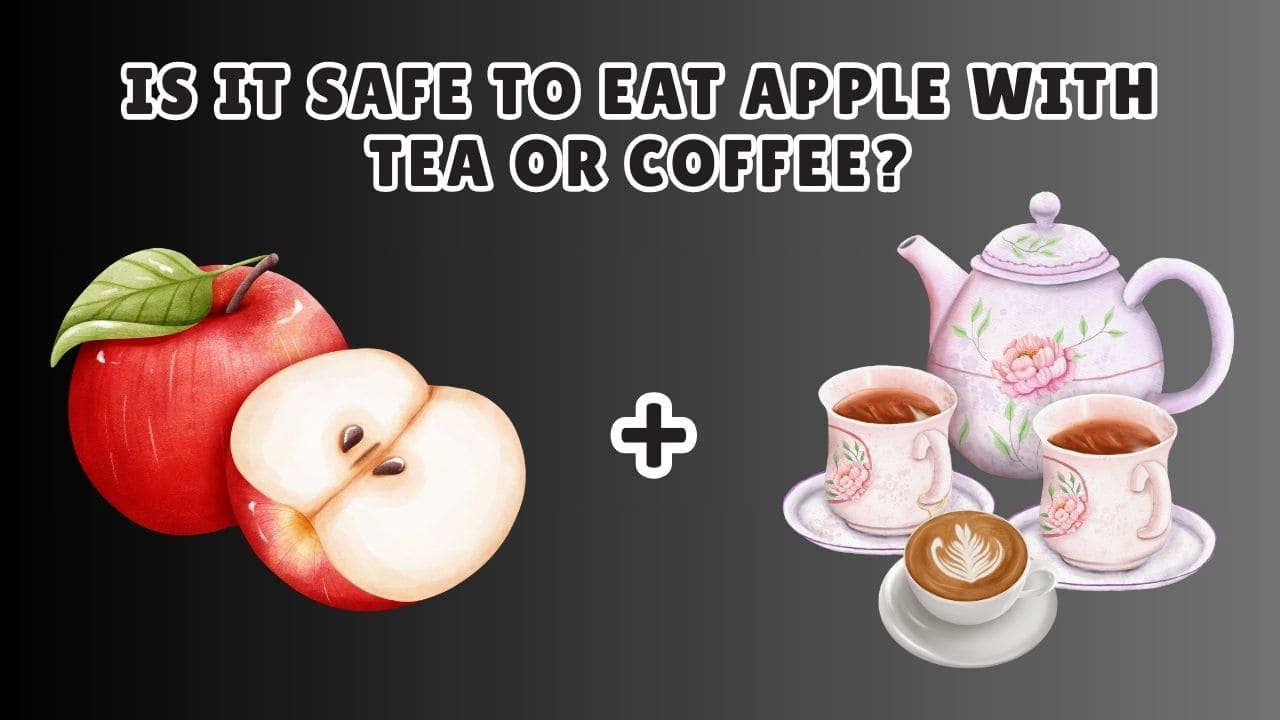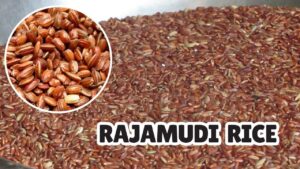Apples are recognized as one of the most popular fruits all around the globe due to their distinctiveness, health factors and added areas of benefits. Likewise, tea and coffee can also be among the most consumed beverages around the world. They serve both purpose of quencher and stimulant. One question that people often ask is whether it is possible to have apples with either tea or coffee.
Will these two foods and drinks have an adverse effect with each other? Let us take a closer look at this subject matter and outline the health aspects and benefits as well as the disadvantages of using apples together with tea or coffee.
Is it Safe to Eat Apple with Tea or Coffee?
It is safe to consume apples with tea and coffee as there are no side effects resulting from consumption with the apples. Apples with either tea or coffee is quite normal in many areas and no harm is caused when we combine them. Therefore there is no significant reason as to why one should hesitate.
Safety Considerations while having Apples with Tea or Coffee
There is no significant risk to human health argued due to the consumption of apples with tea or coffee. Many people actually like these combinations without adverse effects. There are some however, which should be taken into consideration though:
- Caffeine Sensitivity: Certain individuals who are sensitive to caffeine should be careful in mixing apples as a snack along with tea or coffee as these are caffeinated beverages.
- Acidity Levels: Certain mothers may suffer from acid reflux so combining apples with tea or coffee which are quite acidic are likely to be harmful to the stomachs.
Potential Benefits of Eating apples with Tea or Coffee
Apples when taken alongside tea or coffee can reap even more health advantages:
- Nutrient Synergy: It is believed that flavonoids present in apples work with the antioxidants present in tea or coffee which theoretically would enhance the fighting capabilities against oxidative stress.
- Flavor Enhancement: Apples are naturally sweet and can neutralize the bitterness in coffee or the tannins in tea thus mitigating the enjoyment of the drink.
Interactions Between Apples and Tea or Coffee
However, consuming apples with tea or coffee is, in most cases, harmless to the majority of people but there are a few situations that should be taken into consideration depending upon your health, digestion, and absorption of nutrients. This section will address questions of this kind in the area of these potential interactions in more details to give you perspective of how the apple and tea and coffee will function in the human system and how those strategies, if any, may impact on the health of an individual.
1. Acidity: Apples, Tea, and Coffee
Apples and tea or coffee, in general, are possessed of organic acidity but on different levels. The members of the apple family will have some degree of organic acids like malic acid hence the taste will be slightly sour but appetizing. Tea, especially black tea, and coffee also have a measure of acidity although the type is such that it’s not preferable for sensitive stomachs.
Potential Concerns for Sensitive Stomachs
Of concern would be the acidic property of these apples of tea or coffee to people suffering with acid reflux or gastritis – the latter being a condition where inflammation of the stomach could arise due to acid leaking from the stomach into the food pipe. This can be extremely uncomfortable, leading to gas and in some instances heartburn.
Gastroesophageal patients who consume such foods and beverages should be cautious of consuming them together especially on an empty stomach since it can aggravate the symptoms continuously. This combination will exacerbate the increase in acid secretion in the stomach which is already high in patients and lead to inflammation in the gastrointestinal tract.
Tip for Acid Sensitivity:
Try to wait till the drinks have cooled down a bit before drinking tea or coffee. This is especially true for those who have acid reflux or gastritis, as hot drinks can be very upsetting to the stomach in some cases. If this is the case, avoid having accompanied apples or other acidic fruits together with these drinks. For those who love apples, it may be suggested to have them or drinking tea or coffee separately.
For those who love having both, I recommend lowering the quantity of each cup or a low acid tea like green tea or herbal teas.
2. Caffeine and Digestion
We’re accustomed to finding caffeine in both tea and coffee, and it potentially stimulates gastric acid secretion from the stomach. It is possible that this does not affect everyone but in my experience caffeine can cause indirect discomfort and indigestion in certain people especially when on an empty stomach. It’s common knowledge that coffee, being a more concentrated source of caffeine than tea, can cause problems in sensitive individuals like bloating and gas or things even worse than that like acid reflux.
How Caffeine Affects Digestion
Caffeine has been found to increase gastric acid secretions, which can result in excessive acidity of the stomach. This problem is further aggravated in individuals with gastro-esophageal reflux (GERD) consuming caffeine together with other acidic substances like apples. Such acid reflux may result in burning and painful sensations in the chest area, and sometimes there may be nausea.
In some cases, coffee or tea consumption can even give rise to stomach upset, such as cramping and feeling full. This is the case that most people who are not used to a lot of caffeine intake or take these drinks on an empty stomach. Inclusion of further acid foods like apples may compound the problem by encouraging excess acids to be produced.
Tip for Better Digestion:
If you are very particular about where your food goes in your gut, then you should avoid taking apples with any acid or too high fat or protein containing snacks . Such foods help in neutralization of stomach acids and even prevent possible irritation. For instance, having apples with a few nuts or cheese after drinking apples can help reduce the acidic effects of the apple fruit and tea or coffee.
Moreover, tea is also easy on the stomach, especially if one drinks herbal tea such as chamomile or ginger tea, as these are proven to help upset stomachs.
3. Iron Absorption
The interplay of apples, tea, and coffee has its most important aspect with respect to iron absorption. One such compound is tannins which are present in tea and coffee; other authors attribute absorption inhibition to the presence of non-heme iron (iron present in plant foods like apples) that has the tendency to bind with iron-rich compounds. This coating can make it difficult for iron to pass through the gut wall and into the blood.
How Tannins Affect Iron Absorption
Almost always eaten in lower concentrations than in other foods, apples still contain small amounts of such a vital mineral. Non-heme iron is less readily absorbed because tannins, polyphenolic compounds found in tea and coffee, can bind to it. One can cut down on this mineral’s intake by consuming apples with tea or coffee.
This is especially important for people who use a vegetarian or vegan diet to acquire iron. Because plant-based iron is not as effective as the iron found in animals, it is important to utilize strategies that increase the likelihood of iron absorption, including the separation of iron-rich foods from beverages high in tannins.
Tip for Better Iron Absorption:
In order to enhance the intake of non-heme iron from apples, it is advisable to consume tea or coffee at least one hour prior to consuming any food rich in iron. This allows the body to recover nutrients from the last meal or snack that has a different composition. Iron-rich foods such as apples can also be combined with vitamin C-containing foods such as citrus or bell peppers in order to increase their iron absorption effectiveness. If you’re having apples as a source of iron, for instance, eat them with an iron-rich fruit.
4. Blood Sugar Levels
Generally, it is true that both apples and coffee affect blood sugar levels but in different ways. Apples, high in soluble fiber, rate low on the glycemic index or GI. Psalms with a favorable GI do not cause rapid increase in blood sugar concentrations. They also sustain in the blood for a longer duration and this fiber present in apples helps slow down the amount of glucose entering the blood stream and this is good for diabetics or any person tending to maintain blood sugar levels.
Black coffee impression is rather different than the previous relationships when blood sugar levels are concerned. Some individuals’ insulin sensitivity is fine-tuned by caffeine and insulin levels can be controlled. But then again, high caffeine use can also cause blood sugar levels to rise and fall during the day.
This is because caffeine may affect insulin response in humans. To individuals with insulin resistance or those who are likely to have spikes in blood sugar tend to get glucose instability whenever they take coffee in large amounts.
Tip for Managing Blood Sugar:
If worrying about blood sugars, tea or coffee consumption should be restricted although there are personal preferences to coffee or tea which should be had. Adding sugar into tea or cream into coffee will cause rises in glucose levels thus people are advised into opting for black tea or coffee.
Including an apple in meals or snacks is a good way of ensuring blood sugars are maintained within the normal range. It may not have as much effect when still on its own, but you can combine it with protein snacks like yogurt or nuts to reduce sugar intake into the blood stream which in turn, will be effective in controlling blood sugar levels.
Potential Health Benefits of Combining Apples with Tea or Coffee
While there are small risks regarding acidity, caffeine, iron absorption, and blood pressure regarding the above substances, health benefits can be there if apples are taken with tea or coffee while observing caution.
- Antioxidant Boost: Take both apples and tea or coffee and you have good both food and beverage choices because they contain a lot of antioxidants. Flavonoids are contained in apples, while tea and coffee have polyphenols. The combination of these foods may also create a synergistic advantage in fighting off oxidative stresses which is good for health in general.
- Digestive Health: The inclusion of apples in the diet provides fiber, thus aiding in digestion. Such soluble fibers in apples also promote bowel movement on a regular basis and assist in controlling cholesterol levels. Tea including herbal teas such as peppermint and ginger in some cases can also calm the stomach and boost digestion. Therefore, owing to low caffeine content that is not expected to irritate the stomach lining, consuming an apple with plain tea can work well for the individuals digestive system.
- Enhanced Cognitive Function: Tea or coffee contains caffeine and it has been proved that consumption of caffeine boosts up the concentration and mental focus. Including apples with this combination of flavors may be really beneficial because it can provide quick energy most naturally, due to the natural sugars and fiber present in them without the sugar crash associated with extremely processed sugars.
Must Read,
✔️ Pyria in Teeth (Pyorrhea): How to Cure Pyria from teeth?
✔️ What is Guggul: Benefits, Uses and Side effects
Conclusion: Can we eat Apple with Tea or Coffee?
Apples can be eaten at the same time as tea or coffee since they offer various complementary benefits and tastes. The nutritional advantages offered by apples complement those found in both beverages, which further enhances the pleasure of such pairings. Whether you are drinking apple tea or considering combining slices of apple with coffee in the morning, these foods do have a positive effect on health and should be included in the diet.
However, considering that everyone is unique and, for example, their state of health and food habits can influence the outcome, when in doubt regarding the combination of particular foods or in the presence of some restrictions, seek advice from doctors.






